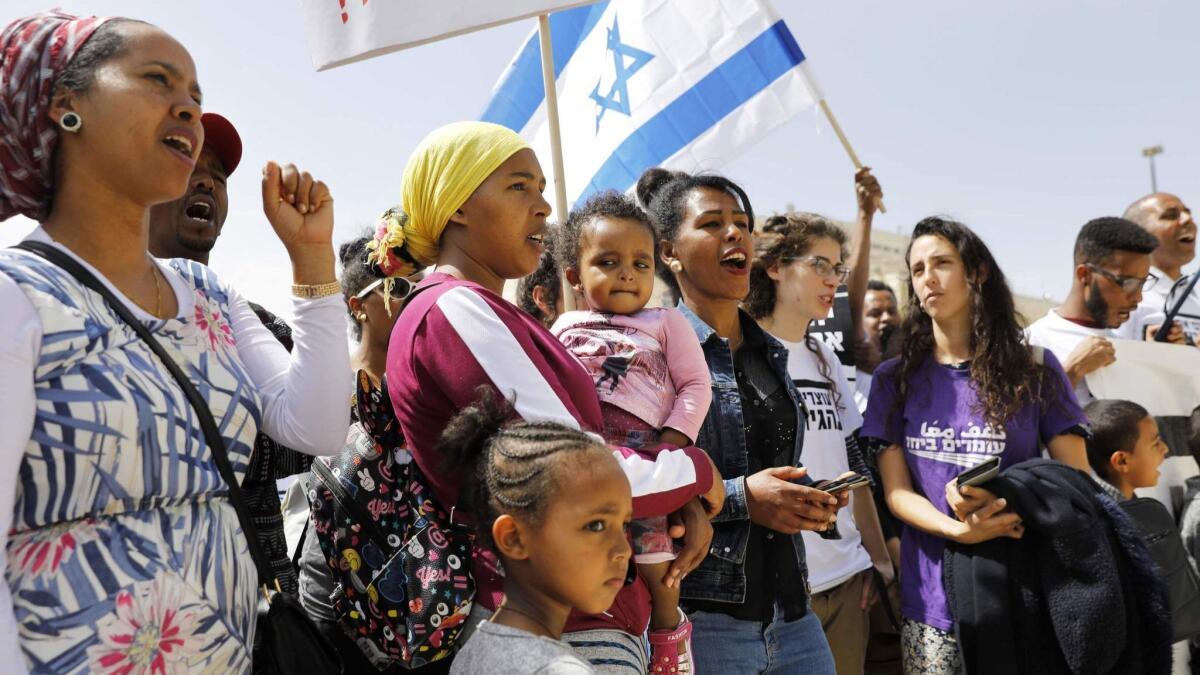In startling turnaround, Netanyahu cancels deal to resettle African migrants

- Share via
Reporting from JERUSALEM — Israeli Prime Minister Benjamin Netanyahu on Tuesday canceled an agreement with the United Nations to resettle thousands of African migrants, caving in to pressure from hawks in his coalition who opposed the deal because it would allow many other migrants to remain in the country.
The startling turnaround drew heavy criticism from Netanyahu’s opponents and raised questions about the embattled Israeli leader’s decision-making processes.
Netanyahu proudly announced the deal with the U.N. refugee agency in a nationally televised news conference Monday, saying it would benefit Israel and the migrants. But after coalition hard-liners attacked him, he announced late in the evening that he was suspending the arrangement in order to consult with residents of south Tel Aviv. Veteran residents of the working-class area, where the migrant population is concentrated, had felt slighted by the deal.
After meeting with residents on Tuesday, Netanyahu said he had weighed the pros and cons and he “decided to cancel the agreement.”
Nationalist allies who dominate Netanyahu’s coalition had harshly criticized the deal because it would allow thousands of Africans to remain in Israel.
Naftali Bennett, leader of the nationalist Jewish Home party, tweeted earlier Tuesday that the deal “is bad for Israel.”
“It’s not enough to suspend it. I call on the prime minister to cancel it completely. Its approval would cause generations of crying and determine a precedent in Israel granting residency for illegal infiltrators,” he said.
Netanyahu announced the deal on Monday after a plan to deport the migrants to an unnamed African country, presumed to be Rwanda, fell through.
Given the lack of choices, Netanyahu said his deal with the UNHCR was the best available option.
It called for resettling about half of the 35,000 African migrants in Israel to Western nations, while allowing the rest to remain in Israel. It also called for dispersing the migrant population throughout the country, and investing and rehabilitating Tel Aviv’s impoverished southern neighborhoods.
More to Read
Sign up for Essential California
The most important California stories and recommendations in your inbox every morning.
You may occasionally receive promotional content from the Los Angeles Times.










